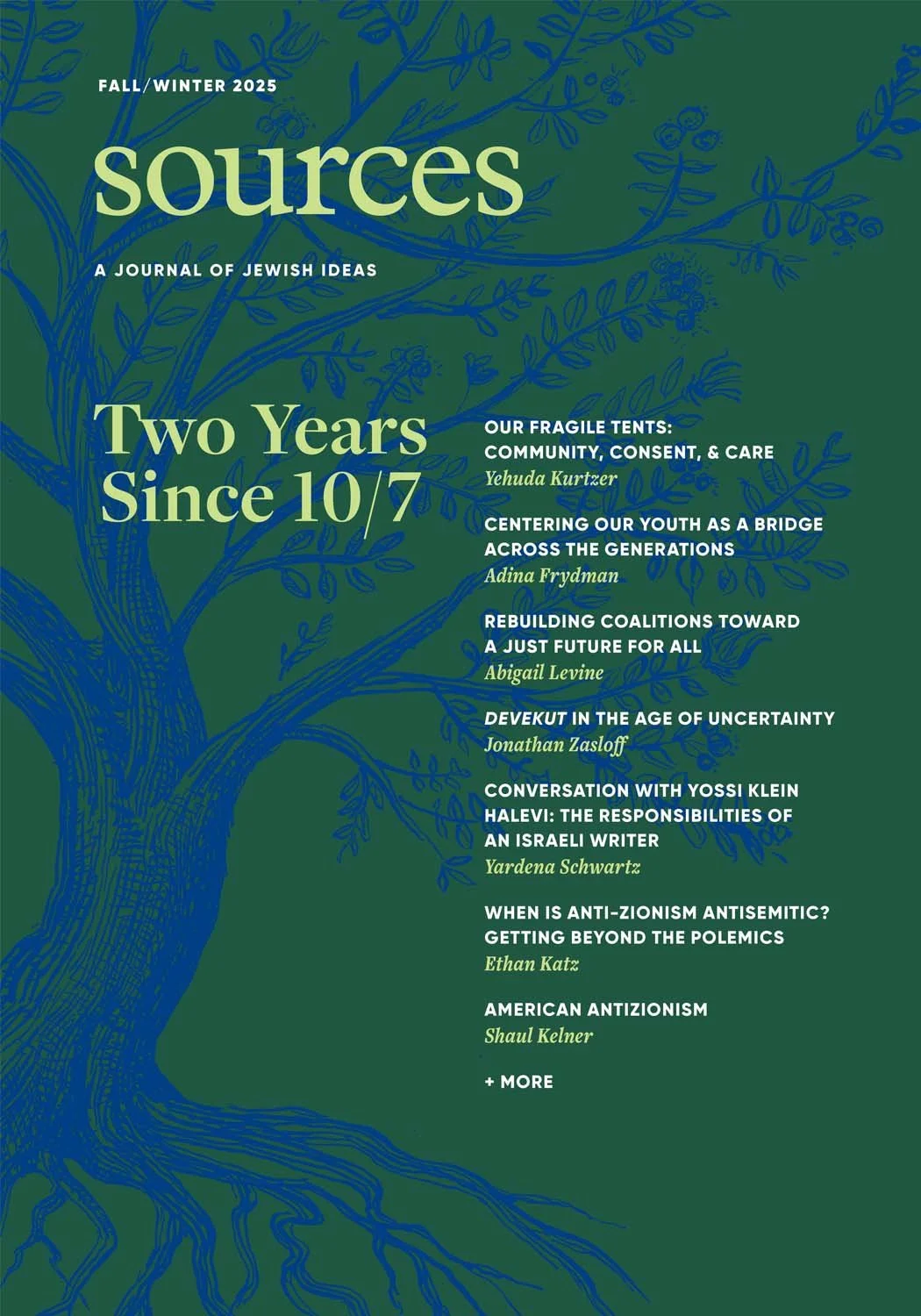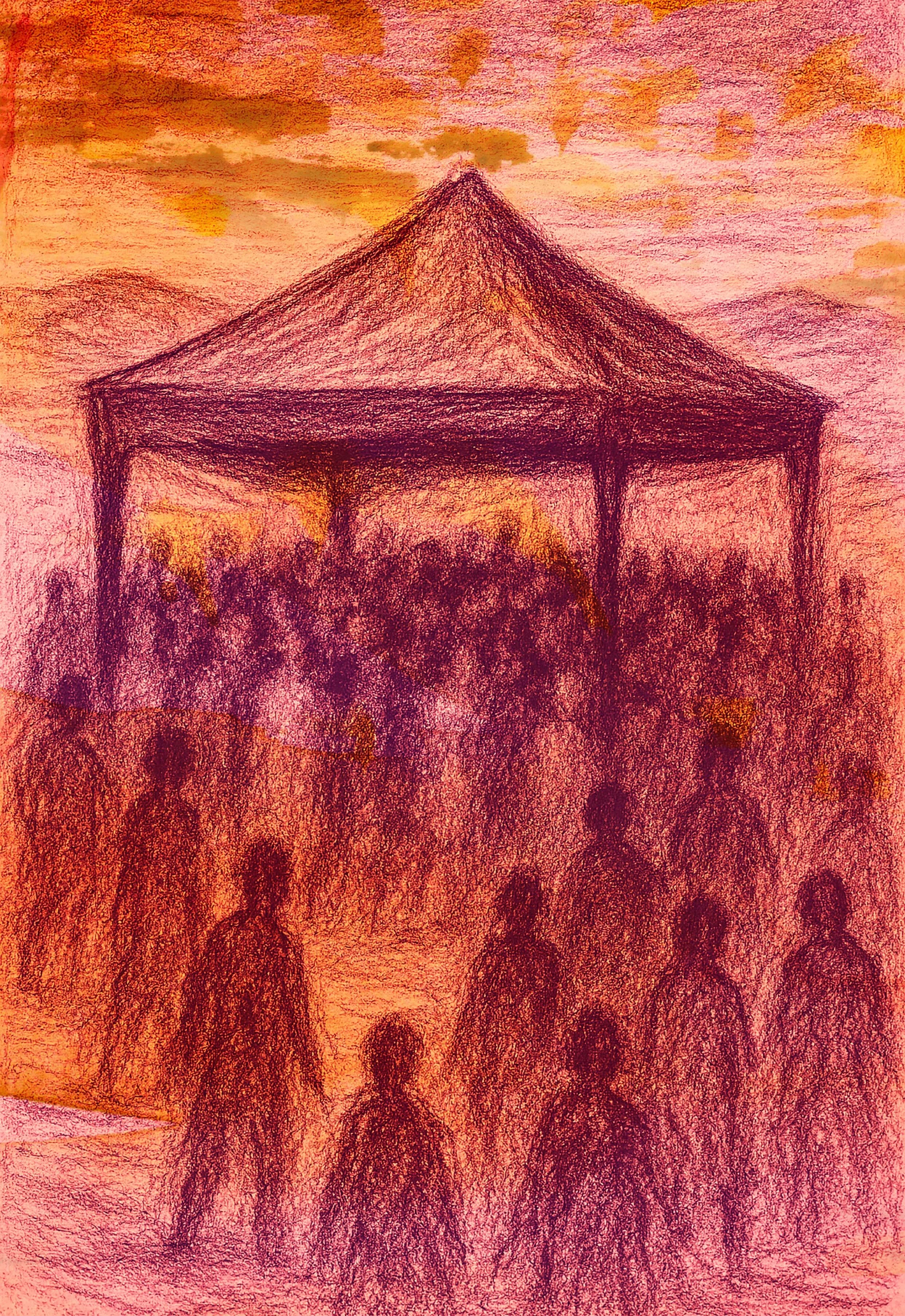Songs of War
Who By Fire: Leonard Cohen in the Sinai
By Matti Friedman
Spiegel & Grau, 224 pages $27
Reviewed by Letty Cottin Pogrebin
Letty Cottin Pogrebin, a founding editor of Ms. magazine, is a writer, activist, and the author of twelve books, most recently, Shanda: A Memoir of Shame and Secrecy.
In 1973, a singer of Leonard Cohen’s prominence could have helicoptered into Israel with an IDF escort, sung “Suzanne,” “So Long, Marianne,” and “Bird on the Wire,” basked in plaudits, signed a few T-shirts, and disappeared back into the clouds. Instead, having heard on the radio about the start of the Yom Kippur war, Cohen arrived in Tel Aviv in virtual anonymity with no plan of what to do there. He didn’t even bring his guitar.
Matti Friedman, author of the meticulously reported, gorgeously written book, Who by Fire: Leonard Cohen in the Sinai, reveals that, rather than Zionist fervor or outrage at the Arabs’ desecration of the holiest day of the Jewish year, Cohen’s departure was motivated by reasons that seem at first glance to have been self-serving and unpraiseworthy. In his previously lost 45-page diary from that time, which Friedman discovered in a Canadian library, the singer admits that his journey “had an unclean start.” He was 39, living on the Greek island of Hydra with his lover Suzanne Elrod, the mother of his infant son (not the Suzanne, who “feeds you tea and oranges”), and feeling mired in artistic inertia and insufferable domesticity. As he framed it, this Suzanne “was so ugly to live with.” She had become a “creature of unbeauty.”
Close followers of Cohen’s work will recognize in this snippet two themes that dominated his songwriting—the inevitability of brokenness and failed relationships, and his conflation of female beauty with the divine. Cohen idealized women, until he didn’t. Romance aside, a pedestal is a very small space, and when his lover stepped off that high perch and became a real person with desires and discontents of her own, in his eyes, she lost her loveliness.
Marcia Pally, author of From This Broken Hill I Sing to You: God, Sex, and Politics in the Work of Leonard Cohen, decodes his pattern like this: “If feminine beauty, like God’s grace, is too great in its awesome dazzle, one must protect oneself from it lest it subsume one and take control. In short, one must bolt” (105).
The flip side of Cohen’s fierce yearning for relational constancy were his repeat flights from commitment. This time, he bolted to Israel. But it was only after a chance meeting in a Tel Aviv café that he agreed to join an itinerant group of Israeli entertainers who were taking off for the front. Someone gave him a guitar, he found a few back-up musicians, and then he gave six to eight concerts a day: in airplane hangars, on scrub grass, in the desert, on an airfield in Sharm-el Sheik, on a landing craft named “Bathsheba,” and on both sides of the Suez Canal. He sang at night, his face illuminated by soldiers’ flashlights or the high beams on a truck. He slept in sleeping bags. He ate combat rations with the troops.
Grainy pictures in the book show Cohen, an undistinguished-looking figure, performing in an open-necked shirt with rolled up sleeves, a far cry from the cool, debonair persona of his black-suited, fedora wearing later years. In one image, he is standing amid a few dozen soldiers as if he were an itinerant folkie who’d commandeered a patch of ground in Central Park and managed to attract a motley crowd. Tanks and trucks are parked helter-skelter in the background of another shot in which the squat figure in fatigues standing at Cohen’s left, who happens to be talking to someone at his own right and paying no attention to the singer, is Major General Ariel Sharon, the future prime minister.
That tour was “maybe one of the greatest, certainly one of the strangest” ever, Friedman asserts, and he marshals evidence to prove it: “No money changed hands. No one sold tickets or bought records. Many of the soldiers didn’t know English, and Cohen couldn’t speak Hebrew...no one thought to film it and hardly any recordings survive”; “Cohen’s tour didn’t attract much public attention”; “Cohen had never seen a war… and couldn’t make much sense of what was going on around him. He didn’t know where he was.”
Despite the singer’s cluelessness and yawning gaps in the historical record, Friedman succeeds in putting flesh on this skeletal tale, conjuring a place, a time, and a 19-day battle that jolted the nation out of its post-1967 delusions of invincibility and ushered in a new era of existential dread. He accomplishes this feat with literary grace, weaving stories about those on the periphery of Cohen’s vaguely spectral tour into the main throughline.
Who By Fire probably contains all that can ever be known about Cohen’s Sinai tour, and, as a diehard Cohen fan, I’m grateful for every detail. However, the book’s stealth power, at least for me, lies in Friedman’s interviews with the IDF vets and Israeli entertainers who lived long enough to tell him what really transpired during those harrowing days and nights: the grunts numbed by exhaustion and haunted by military errors and dead comrades, and the performers who dutifully and devotedly shadowed the troops, making music to drown out the bombs, and telling jokes to distract from the carnage.
As for Cohen’s Sinai story, we would never know the half of it had Friedman not spent years tracking down those accidental witnesses and piecing fragments of their testimonies into a compelling narrative. I won’t soon forget the 18-year-old who delivered a message one minute and got blown up the next. Or the soldier who offered her army cot for the singer to nap on and, though she never got to meet him, treasured the indent of his face on her pillow. Or the two who’d been separated by events but were brought together by friends so they could get married on the ship called “Bathsheba.”
Beyond merely adding color to the singer’s vagabond peregrinations, these ordinary people make us understand anew what war is like and why, however surreal the combination might seem, music belongs on the battlefield.
That said, even vivid memories corrode with time. When recalling events that happened half a century ago, Friedman’s sources often leave holes that can only be patched by surmise and speculation or papered over by the author’s acknowledgement of journalistic dead-ends. About the day an Israeli machine gunner shot down an Egyptian fighter jet whose pilot then parachuted into IDF hands, Friedman simply reports, “Like many dates in this narrative, the precise timing of what happened next is blurry.” Or, from another vignette, “No one remembers how Cohen arrived, just that he was suddenly there.”
The subject himself can be maddeningly elusive. Confronted with Cohen’s opaque state of mind, Friedman resorts to such classic authorial inventions as, “It seems reasonable to imagine that he wondered”; “He might have been asking,” and “He must have felt.” A particular striking example is: “We don’t know what the singer thought about his conversations with Pupik or the other Israelis, because he doesn’t mention them in his writing. In fact, he doesn’t mention the musicians who traveled with him at all. In Cohen’s account he was there alone.”
Love Jewish Ideas?
Subscribe to the print edition of Sources today.
Nor can the singer’s diary be trusted to corroborate facts. His contemporaneous notes range from spare (“Calluses developed on my fingertips”), to cryptic (“There were suggestions here and there that I was useful”), to outright evasive. In a telling interview, a reporter from the Voice of Israel asked the singer if he expects his war experiences to find expression in his work. “Oh, I really don’t know,” the singer replies. “It’s impossible for me to talk of it. I don’t have anything to say. I’m just an entertainer here…I don’t have any thought about it. I just came as soon as I could.”
Jews eager to unmask the singer’s repressed Zionist soul might reasonably assume from that tantalizing coda that he felt a calling and came on a mission. The impact of Cohen’s brooding prophetic presence on the Jews who encountered him likewise elicits the most Jewish of metaphors.
It is as if you’re walking in the desert and God comes down to you and starts speaking,” describes one soldier’s reaction. “I was like Moses hearing the voice, and I walked toward it. I’ll paint the picture for you. A steel helmet on the sand. Sitting on the helmet is a figure with a guitar, singing ‘Lover Lover Lover.’”
Given the scenery, it’s no wonder the Israelis who heard him sing that song, the only one he wrote while in the Sinai, concluded that Cohen identified with them and Israel’s cause. This is the particular verse that supports this view:
I went down to the desert to help my brothers fight
I knew that they weren’t wrong
I knew that they weren’t right
But bones must stand up straight and walk
And blood must move around
And men go making ugly lines
across the holy ground.
A few years later, these same Israelis were shocked to hear the song played on the radio without that verse. It had vanished in the interim, the “brothers” and “the holy ground” both casualties of the singer’s universalist principles. Cohen sang the song in concerts, but never with that verse. He said he wrote “Lover Lover Lover” in Israel but for soldiers “on both sides.” Once, he told a French audience that he wrote it for “the Egyptians and the Israelis.” Friedman adds, “in that order,” underscoring that Cohen’s “Jewish heart,” the particularist one that identified with Israel’s soldiers, had retreated in favor of his “world heart,” his passion for the Other, the stranger.
To my mind, the first verse in “Lover Lover Lover” telegraphs his transformation: “I said, ‘Father, change my name/ The one I’m using now it’s covered up/ With fear and filth and cowardice and shame.” Cohen’s subsequent erasure of the brotherhood verse was his way of asserting that no country is perfect, even the one founded in his name, and ours
Cohen, a kohen, became a bar mitzvah at 13 and a Buddhist Monk in his 60s. He took the name Jikan, meaning “the space between thoughts,” or “ordinary silence,” an interesting, if perverse, choice for a singer. Yet, thanks to Friedman’s revelations, I’m pleased to report that in 1973, in the Sinai, during the most famous tour you’ve never heard of, Leonard Cohen asked Israelis to call him by his Hebrew name: Eliezer.
This article appears in the online version of Sources, Fall 2022.




